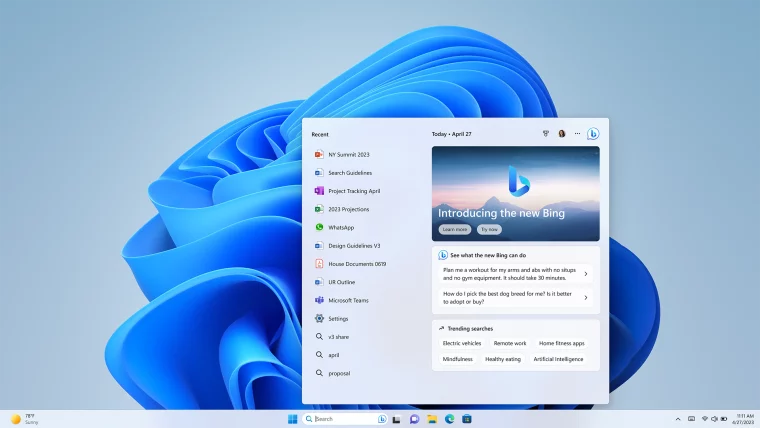
It has been nearly a month since Microsoft officially announced the release of its AI-powered version of the Bing search engine, aided by the technology created by OpenAI, a company it has backed for years and that it now partially owns.
“AI will fundamentally change every software category, starting with the largest category of all – search”, the head of the company, Satya Nadella, asserted during the news conference where the product was unveiled.
During these first few weeks, more than one million users from 169 countries have tested the new Bing and have provided feedback to the company about their interactions. Some flaws in the software have already been identified including hostile responses during certain exchanges where the user tried to point out inaccuracies in the responses they were being given.
Here’s What Has Happened Since AI Bing Was Launched
Microsoft (MSFT) has been making tweaks to the chatbot throughout the entire testing phase. For example, the company imposed a limit of 50 chat turns per day and 5 chat turns per session on 17 February after users started to report the chatbot’s rambles.
However, just four days after, the company expanded these limits to 60 chat sessions per day and 6 chat turns per session while the developers were working to further increase or even eliminate those limits once they are sure that the AI model can handle those lengthy interactions.
In addition, the Redmond-based company introduced a tool that allows the user to change the tone that it wants the artificial intelligence to assume for its responses. Users are now able to choose among three tones: Precise, Balanced, and Creative.
The Precise option will come up with straightforward answers to the user’s text prompt while the other two alternatives will be “more chatty”, possibly looking more like a regular conversation with a person who passes as a “know-it-all”.
Microsoft has also incorporated a preview of AI Bing into the mobile version of the Bing and Edge apps on both iOS and Android devices. In addition, a new social feature powered by the same model has been added to Skype – the instant messaging and video chatting app it also owns.
In the case of Skype, the AI will act as a virtual assistant that can be added to any conversation so the people involved can ask questions that are relevant to the group’s conversation.
For example, if you are planning a trip with some members of your family, the group can use the help of the AI chatbot to research the best place to visit during a short or long stay or how the weather is expected to be during those days.
Finally, on 28 February, Microsoft announced that it updated its Windows 11 operating system to incorporate an AI-powered taskbar for Bing that can be used to easily find any information that the user may need without having to visit a website.
Those who have not yet been able to test Bing’s new AI features can still sign up for the waitlist. For that, they will need a Microsoft or Skype account.
Microsoft Takes on Google, OpenAI Could Dominate the AI Industry
In the same way that Microsoft has been improving its AI-powered software, the company that it backs – OpenAI – has also launched new products including commercial APIs for ChatGPT and Whisper – the speech-to-text equivalent of the latter app.
This widely awaited product can be used by developers to create AI-enhanced solutions and it has already been put to the test by companies such as Snapchat (SNAP), Instacart, and Shopify.
In the case of Microsoft, the company is aiming to take over the undisputed giant of the internet search industry – Alphabet (GOOG) – while OpenAI may be working its way to becoming the go-to back-end software that powers a new generation of AI-reliant products and services.
Other Related Articles: